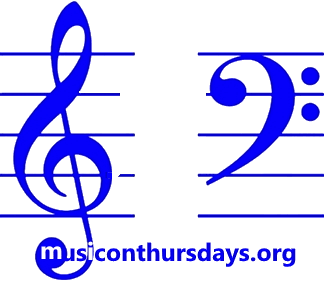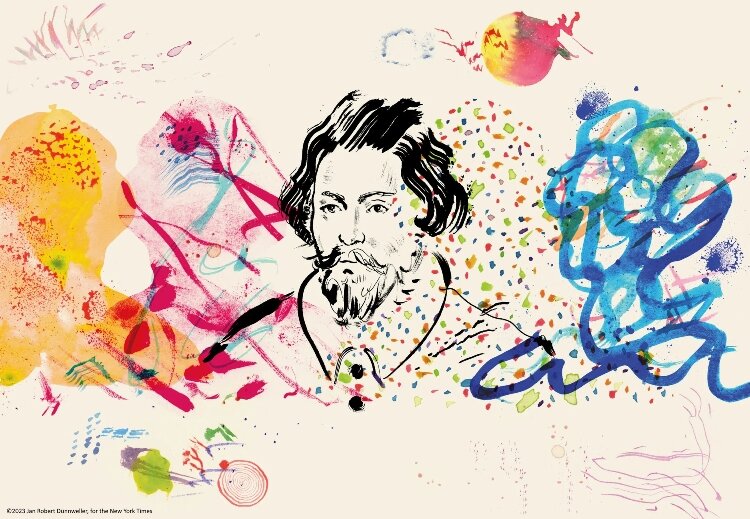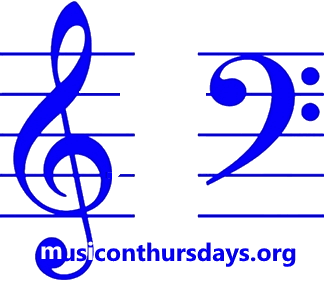400th Anniversary of William Byrd (c1540-1632)
Yeo Yat-Soon
harpsichord
Programme
William Byrd & his Contemporaries
William Byrd
from My Lady Nevells Booke (1591)
Lord Willobies Welcome Home
Three Dances from The Fitzwilliam Virginal Book
157 Wolseys Wilde BK37
218 (The French) Coranto BK21a
155 La Volta BK91
Anon c1530 (formerly attrib Hugh Aston)
My Lady Careys Dompe
Hugh Aston (c1485-1558)
A Hornepype
Thomas Tallis (c1505-1585)
found in The Mulliner Book (mid/late C16)
O Ye Tender Babes
Antonio de Cabezón (1510-1566)
Diferencias sobre el Canto Llano del Caballero
Variations on the Knight's Plainsong
William Byrd
from The Fitzwilliam Virginal Book
69 The Bells BK38
Giulio Caccini, aka Romano (1551-1618)
Amarilli mia bella, song for voice & continuo
arr for harpsichord Peter Philips (c1560-1628)
from The Fitzwilliam Virginal Book
Amarilli di Julio Romano (1603)
Orlando Gibbons (1583-1625)
Lincolnes Inne Maske MB44
The Queenes Command MB28
John Bull (1562/3-1628)
from The Fitzwilliam Virginal Book
A gigge. Doctor Bull’s my selfe MB38
My Grief MB139
William Byrd
from My Lady Nevells Booke
Sellingers Rownde BK84
Concert duration approx: 55 minutes
Please donate to help fund these concerts at: cafdonate.cafonline.org/14455
William Byrd, composer, virginalist
William Byrd (c.1540 – 4 July 1623) was an English Renaissance composer. Considered among the greatest composers of the Renaissance, he had a profound influence on composers both from his native country and on the Continent.
He is often considered, along with John Dunstaple and Henry Purcell, as one of England's most important early music composers.
Byrd wrote in many of the forms current in England at the time, including various types of sacred and secular polyphony, keyboard (the so-called Virginalist school), and consort music.
He produced sacred music for Anglican services, but during the 1570s became a Roman Catholic, and wrote Catholic sacred music later in his life.
FURTHER READING
See full wikipedia article here: https://en.wikipedia.org/wiki/William_Byrd
or this article, published in the New York Times on 4th July 2023, the 400th anniversary of Byrd's death: https://www.nytimes.com/2023/07/04/arts/music/william-byrd-400-anniversary.html
He is often considered, along with John Dunstaple and Henry Purcell, as one of England's most important early music composers.
Byrd wrote in many of the forms current in England at the time, including various types of sacred and secular polyphony, keyboard (the so-called Virginalist school), and consort music.
He produced sacred music for Anglican services, but during the 1570s became a Roman Catholic, and wrote Catholic sacred music later in his life.
FURTHER READING
See full wikipedia article here: https://en.wikipedia.org/wiki/William_Byrd
or this article, published in the New York Times on 4th July 2023, the 400th anniversary of Byrd's death: https://www.nytimes.com/2023/07/04/arts/music/william-byrd-400-anniversary.html
Performer
Yeo Yat-Soon was born in London of Chinese parents. He studied at King’s College London, from where he holds a Master’s degree in Historical Musicology. He also pursued postgraduate studies in Harpsichord and Conducting at the Guildhall School of Music, where he won the Raymond Russell Prize for Harpsichord.
He performs widely as a harpsichordist, specializing in giving concerts in historical buildings. Regular venues include the Chapel Royal at Hampton Court Palace, Handel House Museum and Strawberry Hill House in the UK, and Kammersaal Friedenau and the Instrument Museum in Berlin.
Yat-Soon also specializes in baroque opera and has conducted for London Baroque Opera, City of London Festival and Opéra de Baugé. He plays with the ensembles Follia, the Stanesby Players and Camerata Berolinensis (Berlin).
His latest project, re-creations of meetings between Chinese and European musicians in the 17th and 18th centuries with the group Divertissements Chinois, was chosen as one of the recipients of a grant in the 2023 round of funding by the Continuo Foundation.
Yat-Soon has broadcast for BBC Radio 3, Classic FM, as well as BBC1, BBC4, and Channel 4 television.
Yat-Soon has had a long association with education, having been Director of Music at St Paul’s Girls’ School and The Lady Eleanor Holles School. He currently teaches harpsichord, coaches chamber music and lectures on Historical Performance Practice at the University of Birmingham.
To follow Yat-Soon’s latest updates please see: www.yeoyat-soon.org
He performs widely as a harpsichordist, specializing in giving concerts in historical buildings. Regular venues include the Chapel Royal at Hampton Court Palace, Handel House Museum and Strawberry Hill House in the UK, and Kammersaal Friedenau and the Instrument Museum in Berlin.
Yat-Soon also specializes in baroque opera and has conducted for London Baroque Opera, City of London Festival and Opéra de Baugé. He plays with the ensembles Follia, the Stanesby Players and Camerata Berolinensis (Berlin).
His latest project, re-creations of meetings between Chinese and European musicians in the 17th and 18th centuries with the group Divertissements Chinois, was chosen as one of the recipients of a grant in the 2023 round of funding by the Continuo Foundation.
Yat-Soon has broadcast for BBC Radio 3, Classic FM, as well as BBC1, BBC4, and Channel 4 television.
Yat-Soon has had a long association with education, having been Director of Music at St Paul’s Girls’ School and The Lady Eleanor Holles School. He currently teaches harpsichord, coaches chamber music and lectures on Historical Performance Practice at the University of Birmingham.
To follow Yat-Soon’s latest updates please see: www.yeoyat-soon.org
Recordings of the works in today's concert
William Byrd
from My Lady Nevells Booke (1591)
Lord Willobies Welcome Home [2:47]
Gustav Leonhardt performs in this audio recording:
from My Lady Nevells Booke (1591)
Lord Willobies Welcome Home [2:47]
Gustav Leonhardt performs in this audio recording:
William Byrd
Three Dances from The Fitzwilliam Virginal Book
157 Wolseys Wilde BK37 [5:08]
This unusual recording of Wolseys Wilde shows how music of this time can be played on a variety of instruments, and frequently was. In this Swiss recording we hear the topline on Soprano Saxophone (Matthis Gubler), Schwyzerörgeli, a form of folk accordion (Simon Dettwiler) and the Alphorn, played here in the continuous breathing manner of an aborigine didgeridoo, providing the underlying bass line (Hannes Frankhauser).
They are a group called SULP - SwissUrbanLändlerPassion, which we'd translate as SwissUrbanFolkPassion. They are joined by organist Lisette Stoffel, in the Kirche Heilig Kreuz (Holy Cross Church), in Zurich Altstetten.
Three Dances from The Fitzwilliam Virginal Book
157 Wolseys Wilde BK37 [5:08]
This unusual recording of Wolseys Wilde shows how music of this time can be played on a variety of instruments, and frequently was. In this Swiss recording we hear the topline on Soprano Saxophone (Matthis Gubler), Schwyzerörgeli, a form of folk accordion (Simon Dettwiler) and the Alphorn, played here in the continuous breathing manner of an aborigine didgeridoo, providing the underlying bass line (Hannes Frankhauser).
They are a group called SULP - SwissUrbanLändlerPassion, which we'd translate as SwissUrbanFolkPassion. They are joined by organist Lisette Stoffel, in the Kirche Heilig Kreuz (Holy Cross Church), in Zurich Altstetten.
William Byrd
Three Dances from The Fitzwilliam Virginal Book
218 (The French) Coranto BK21a (arr 1588?) [1:08]
after a Lute piece of 1353 !
This short piece is played by a youtuber called "Gryzor87". The instrument is a replica of a Flemish Virginaal, or muselaar, after a Ruckers model of 1611 (city of Antwerp):
Three Dances from The Fitzwilliam Virginal Book
218 (The French) Coranto BK21a (arr 1588?) [1:08]
after a Lute piece of 1353 !
This short piece is played by a youtuber called "Gryzor87". The instrument is a replica of a Flemish Virginaal, or muselaar, after a Ruckers model of 1611 (city of Antwerp):
William Byrd
Three Dances from The Fitzwilliam Virginal Book
155 La Volta BK91 [3:11]
Here's a delightful recording by organist Clive Driskill-Smith, and percussionist Joseph Gramley, from the Auer Hall of the Music Dept of Indiana University:
Three Dances from The Fitzwilliam Virginal Book
155 La Volta BK91 [3:11]
Here's a delightful recording by organist Clive Driskill-Smith, and percussionist Joseph Gramley, from the Auer Hall of the Music Dept of Indiana University:
Anon c1530 (formerly attrib Hugh Aston)
My Lady Careys Dompe [2:49]
One of the earliest surviving keyboard pieces we have, this dance (a written-down improvisation by an unknown musician) comes from England during the time of King Henry VIII. The performer, standing at a 2-keyboard harpsichord, is Elaine Comparone:
Hugh Aston (c1485-1558)
A Hornepype [3:09]
English keyboard player Rosemary Thomas plays this little dance:
Thomas Tallis (c1505-1585)
found in The Mulliner Book (mid/late C16)
O Ye Tender Babes [2:26]
The harp is, like the harpsichord, a plucked instrument. Hence this performance of O Ye Tender Babes by Howard Witsenburg.
The second recording here is of the piece sung by an amateur choir - the GWU Chorale and Early Music Ensemble of Gardner-Webb University, North Carolina - in the Church of the Redeemer.
|
|
|
Antonio de Cabezón (1510-1566)
Diferencias sobre el Canto Llano del Caballero [3:51]
Variations on the Knight's Plainsong
Antonio de Cabezón's variations on the "Caballero" tune, performed on the harpsichord by Hanneke van Proosdij. Temperament: meantone. Harpsichord by Johannes Klinkhamer, Amsterdam, The Netherlands, 2000 (after Bartolomeo Cristofori, Florence, Italy, 1725)
William Byrd
from The Fitzwilliam Virginal Book
69 The Bells BK38 [8:16]
Following the sound of the abbey's eight bells (which form the C major scale), Stefan Müller plays on the Hauser organ of Wettingen Abbey church (Switzerland, County Aargau).
Giulio Caccini, aka Romano (1551-1618)
Amarilli mia bella, song for voice & continuo
arr for harpsichord Peter Philips (c1560-1628) [5:05]
from The Fitzwilliam Virginal Book
Amarilli di Julio Romano (1603)
The performer of this transcription of a popular Italian aria of the period is Kevin H Gray:
Orlando Gibbons (1583-1625)
Lincolnes Inne Maske MB44 [1:18]
Timothy Roberts plays this lively maske:
Orlando Gibbons (1583-1625)
The Queenes Command MB28
In this recording Yeo Yat-Soon, performing in St Mary's Church, beside the Thames at Hampton, presents first Byrd's Pavana The Earl of Salisbury, and then Gibbons' The Queenes Command:
John Bull (1562/3-1628)
from The Fitzwilliam Virginal Book
A gigge. Doctor Bull’s my selfe MB38
My Grief MB139
In this Trevor Pinnock recording he begins with the exciting The King's Hunt, and continues with My Selfe and My Grief.
William Byrd
from My Lady Nevells Booke
Sellingers Rownde BK84 [5:30]
Our lively final piece is played by Andreas Staier:
Previous concert
31 August 2023 - Yuzhang Li, piano - click here
Next concert
14 September 2023 - Buck Brass Trio (trumpet, horn, trombone) - click here








